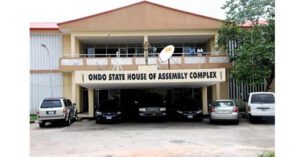
Boko Haram designed to destroy Nigeria — Buhari
The President, Major General Muhammadu Buhari (retd.), on Wednesday, described the Boko Haram group and its attendant ideology — which abhors Western education — as a “fraudulent plot” designed to “destroy Nigeria.”
Buhari’s comments come barely 48 hours after he alleged a “deliberate plot” to destroy the country, which failed.
Officially known as Jamā’at Ahl as-Sunnah lid-Da’wah wa’l-Jihād, the Boko Haram sect is an Islamic terrorist organisation that has troubled Nigeria’s north with targeted bombings and offensives since 2009.
Boko Haram, literally translating to “Western Education is forbidden” discourages involvement in any form of secularism, including secular education.
According to Buhari, the Nigerian Armed Forces has degraded the sect significantly since 2015.
“I just came back from Adamawa and Yobe States. During the visit to both states, I listened carefully to what the people and officials had to say. And they all said the situation had improved since 2015, especially in Borno State.
“Boko Haram was just fraudulent and a plot to destroy Nigeria. You can’t say people should not learn; the people need to grow intellectually,’’ he said when he received Executive members of the Catholic Bishops’ Conference of Nigeria at the State House, Abuja.
The President’s Special Adviser on Media and Publicity, Femi Adesina, disclosed this in a statement he signed on Wednesday, titled ‘Count on us to further improve security, reposition economy before leaving office, President Buhari assures.’
Buhari told the Clergymen that the government is now focused on rebuilding infrastructure and re-orientation on education in the northeast.
He also promised that the gains recorded in security will be further consolidated, and more attention will be given to the economy, before handing over on May 29, 2023.
“I am very grateful for your visit to the Presidential Villa, and I agree with you on some of the observations you have made. The question of insecurity is most important to us because unless a country or institution is at peace, it will be difficult to manage.
“I just came back from Adamawa and Yobe States. During the visit to both states, I listened carefully to what the people and officials had to say. And they all said the situation had improved since 2015, especially in Borno State.
“Boko Haram was just fraudulent and a plot to destroy Nigeria. You can’t say people should not learn; the people need to grow intellectually,’’ he said.
Buhari told the Catholic Bishops that the government will continue rebuilding infrastructure in parts of the country affected by terrorist attacks, while emphasising that terrorists had no control over any space in Nigeria.
“Some people have acknowledged the difference,’’ he added.
On the economy, the President said creditors had full confidence in Nigeria, with the capacity to utilize resources and repay loans before the approvals were granted.
“We are credible, that’s why the countries and institutions agreed to support our development with the loans,’’ he stated.
He lamented that the destruction of oil facilities slowed revenue generation, and the government would be harder on saboteurs.
According to him, some of the challenges faced in the past, which include coups and counter-coups, and civil war, had prepared Nigeria for survival.
“If you look at the economy, we are trying hard to rely more on ourselves. Nigerians rely more on agriculture for livelihood, and we are putting in our best to enable more people, and diversify.”
“We thank God that Nigeria is still one,’’ he said. “We should not forget that more than a million died for the nation to survive,” he noted.
n his remarks, the leader of the delegation and President of the CBCN, Lucius Ugorji, commended the President for reforms in the electoral system, making it more stable and fairer, particularly the signing of the Electoral Bill into law.
Ugorji urged the President to insist on the Independent National Electoral Commission, to ensure credible elections in February and March.
“Please do not relent in making sure that INEC and other relevant agencies of government carry out their serious duties to conduct peaceful, free, fair, and credible elections,’’ he said.
Ugorji urged the President to use the remaining months in office as Commander-in-Chief to tackle insecurity in the country, and improve the economy.
“The main crux of our message to you today is one of fervent appeal and strong encouragement. Your tenure of two terms as President, Commander-In-Chief of Nigeria, is drawing to an end. But we believe a lot can be done to turn things around for the better in the about four months left of your presidency before you step down in May 2023,’’ the cleric noted.
The Catholic Bishops presented a souvenir to President Buhari, containing a letter of encouragement and prayers for the forthcoming elections.



